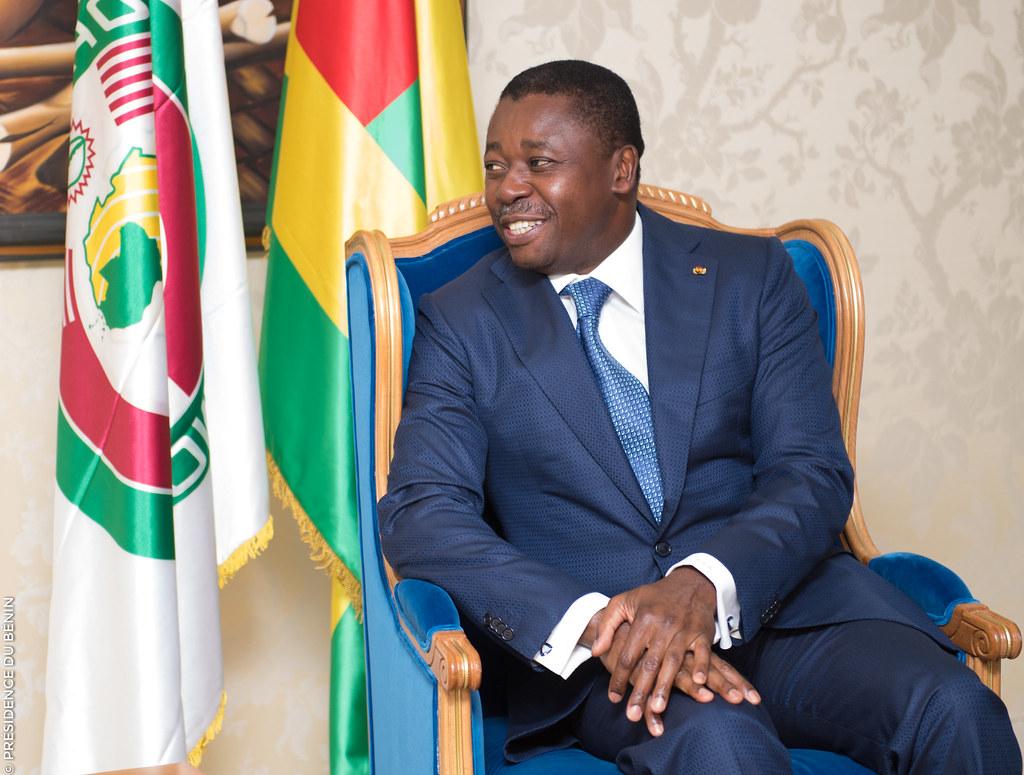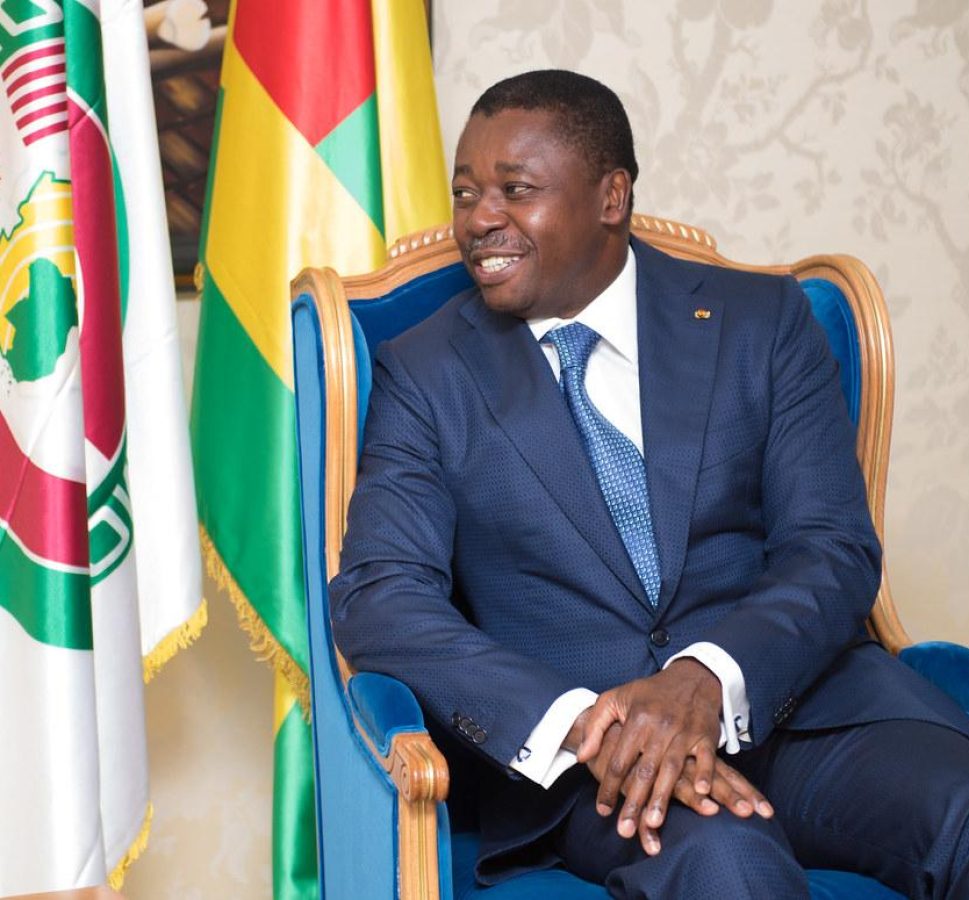
New changes to the constitution mean presidential polls are likely to be scrapped, leaving lawmakers as the kingmakers.
Some 4.2 million eligible Togolese voters are heading to the polls on Monday to vote in delayed and controversial parliamentary elections that are causing tensions in a West African region already plagued by instability.
Unlike in previous elections in which voters in the country of eight million people elected both legislators to the country’s parliament, as well as the president, this time around, they will only be taking part in an indirect vote that could further lock in the long, repressive rule of President Faure Gnassingbe. The changes are due to a constitutional reset that has angered some of the populace and set off protests.
Although tiny, Togo commands considerable clout as a maritime trade hub in Africa because of the Lome Port, the gateway into inland West African countries like Burkina Faso. Unrest in Togo could have ripple effects on trade across the region.
Here’s why new changes to the constitution are causing an outcry, and how these elections could be the most important for Togo in decades:
What’s just changed?
On April 20, lawmakers in a parliament dominated by the governing Union pour le Republic (UNIR) party approved changes to the constitution that dramatically altered how the country’s presidents will be elected, despite fierce outcry from opposition politicians and civil society groups who called the move a constitutional coup.
The vote passed a second reading by a count of 87-0. Proponents have argued that it delivers democratic gains like a weakened presidency and a stronger legislature, but the president has delayed signing off on it due to its widespread unpopularity.
The new amendments mean that the president will no longer be elected by popular vote but by members of parliament and that the role itself will now be largely ceremonial, limited to one four-year term.
A new, all-powerful prime minister to be appointed by the president for a six-year term will step in instead.
Advertisement
It is this role that many experts suspect President Gnassingbe – constitutionally limited to just one more presidential term – is angling for.

“That parliament alone will be able to appoint the president ensures that a loyalist will be in the only position to provide a rival power base,” said Afololabi Adekaiyaoja, a researcher at the Center for Democracy and Development (CDD).
“This change ensures [Gnassingbe’s] grip on Togo as long as he can control his party and ensure victory. The fact that this has been rubber-stamped, without any allowance for citizens to endorse or reject the proposals, adds to the concern that the ulterior motive is to ensure he retains power.”
Gnassingbe, 57, has been in power since 2005, elected in landslides in four separate elections over the years. He replaced his father, Etienne Eyadema Gnassingbe, who led Togo for nearly 38 years until he died in 2005. The family has held power for a combined 57 years – making it the longest-ruling dynasty government in Africa.
Who is competing for what?
Some 2,000 candidates are vying for 113 parliament seats and 179 regional councillor seats.
All parliament members elected in 2024 will serve six-year terms as per the new amendments, up from a previous five-year term.
There are several coalitions, formed of major parties including:
- Union pour la Republique or Union for the Republic (UNIR) – the governing party which controls parliament. It won 59 out of 91 seats in the 2018 legislative elections after the opposition parties boycotted the vote, alleging an atmosphere of violence.
- Union des Forces du Changement or Union of Forces of Change (UFC) – the second-biggest party with seven seats in parliament is led by veteran opponent candidate Gilchrist Olympio, son of Togolese founding President Sylvanus Olympio. The party currently has seven seats in parliament. While Gilchrist was a longtime opponent of the older Gnassingbe, he has since allied with President Faure.
- Alliance National pour le changement or National Alliance for Change (ANC) – the main opposition party led by two-time presidential candidate and outspoken government critic, Jean-Pierre Fabre. ANC is part of the Save Togo opposition coalition and has led protests against the constitutional amendment in recent weeks, although those protests have been banned by the government.
Others are:
- Mouvement Patriotique pour la Democratie et le Developpement or Patriotic Movement for Democracy and Development (MPDD) – a party with two parliament seats, formerly led by one-time Prime Minister Agbeyome Kodjo who died in March.
- Parti Democratique Panafricain or the Democratic Pan-African Party (PDP) and the Mouvement des Republicains Centristes or Movement of Centrist Republicans (MRC) – which have one seat each.

Will the opposition boycott the vote?
The Togolese opposition is splintered along several factions, and thus weakened, analysts have said.
To make an impact, the groups have either allied with the governing party or not participated in elections as a form of protest.
In the December 2018 legislative elections, several factions boycotted the vote, refusing to compete, and paving the way for the governing UNIR to maintain a majority.
This time though, opposition parties have mobilised massively. In the streets of Lome, supporters clad in party colours and hanging from buses or trucks sang and called for people to come out and vote in the weeks leading up to the vote.
Opposition ANC led by Fabre has campaigned on a platform of “change”, for one, but experts feared there is little a fractioned opposition can do in the face of the powerful UNIR.
“The combined efforts of Togolese academia, civil society, and even religious forces should ordinarily play a role in deterring such an effort, but the legislature has still passed the [amendments],” Adekaiyaoja of CDD noted.
In the current climate, the opposition needs to shift and see its role as “ensuring that citizens are aware of the limitations of the bill and potentially making its repeal a central theme in their campaigns.”
Opposition parties have called for protests against the new amendments alongside their campaigns. Protests planned for April 12 and 13 were banned by the authorities, however, and some opposition members were arrested.
In mid-April, about 15 civil society organisations signed a declaration highlighting the “illegitimate” and “illegal” nature of the amendments and called for a large popular rally on May 5 in Lome.
Will the elections be “free and fair”?
Elections in Togo have in the past been criticised by opposition groups and activists for being held under a climate of fear, intimidation and violence.
In advance of the 2018 elections, the government cracked down hard on thousands of protesters asking for Gnassingbe to step down. It was the same during and after the elections. Security forces arbitrarily harassed and arrested opposition leaders or private citizens suspected of supporting the opposition and some were reportedly tortured in custody.
Opposition demonstrations are being forcefully scattered again in the lead-up to these elections.
Meanwhile, few trust the Commission Electorale Nationale Independante (CENI) which was criticised for declaring a disputed high voter turnout in the 2018 elections, even in opposition strongholds where the vote had been boycotted.
On April 15, authorities banned foreign media from covering the elections, following the arrest and deportation of French journalist Thomas Dietrich, who reporters’ rights groups said was beaten. Independent monitors like the Catholic Church, which is influential in the country, have also been refused monitor status.
Although the African Union (AU) and the regional economic body, the Economic Community of West African States (ECOWAS), sent in observers in 2018, the two groups did not make strong statements against attacks on the opposition at the time. ECOWAS has already sent a “pre-election assessment” team to the country but has not announced if it will deploy a monitoring team.
What’s next?
A UNIR majority is likely on April 29, experts have predicted.
If that happens, and if President Gnassingbe formally signs the amended constitution into law, protest actions from the opposition could do little to reverse the changes, Adekaiyaoja of CDD said.
“Protests can only be effective if they work now – ahead of the formal enactment of the amendment,” he said.
If not, the president’s likely crowning as prime minister would put Togo back in a business-as-usual state, setting Gnassingbe up for office until at least 2030.
Opposition action and the likely crackdown that would come from the government could prove a headache for ECOWAS, which has overseen many crises in recent months, from clashes with the military government in Niger to a now-averted electoral stalemate in Senegal.
Togo would further test the bloc’s effectiveness under the headstrong chair – Nigeria’s President Bola Tinubu.
“ECOWAS needs to be more assertive … democratic backsliding is not only where there are coups, but also where democratic processes are abused and ignored by leaders,” Adekaiyaoja said.
https://imasdk.googleapis.com/js/core/bridge3.637.1_en.html#goog_872018798Play Video






